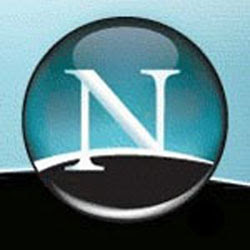Sixteen years ago this week the death knell sounded for the original Internet browser, Netscape Navigator. Enough time has passed to be brutally honest about Netscape's self-destruction without offending anyone (too much).
I had just arrived at Netscape HQ in Mountain View when the grim news came over the car radio: AOL had purchased Netscape for $4.2B. My heart sank to the floor. AOL represented everything Netscape wasn't -- philosophically, culturally, technologically.

Conventional wisdom says the sale was inevitable, the only realistic option for Netscape given Microsoft's competitive advantages. Nonsense. Netscape's leadership sold the company to Steve Case's AOL at a time when Netscape had 40 percent of Internet browser market share.
"The main thing is main thing" was one of Netscape CEO Jim Barksdale's pet phrases. But wait, Jim. The main thing to me, still, is Why did Netscape bail out just when the Internet was arriving at a massively profitable model? Why abandon an undeniably strong market position to Microsoft? Two possible answers: Either they panicked, or they succumbed to greed. Maybe it was a combination of the two.
The disappointment inside Netscape following the merger announcement was palpable. Despite Marc Andreessen's and Barksdale's backpedaling, we sensed that AOL was buying Netscape to remove it, so they could go toe-to-toe with Internet Explorer without the distraction of an independent, nimble, technologically adept competitor. Imagine being told to abandon a race while running strong at the front of the pack.
Soon enough, a cadre of technologically illiterate debutantes from AOL's Virginia headquarters descended on Netscape -- wearing business attire, exhibiting cluelessness -- and confirmed our worst fears. To overcome the disillusion and resentment raging inside Netscape, AOL paid us two months salary to stick around. That only delayed the talent exodus. When it's over; it's over.
Netscape alums still contemplate the "what if" scenario -- What if Netscape's leadership had shown backbone, had followed their own advice to persevere against a monolithic yet technologically hamstrung competitor? What if they hadn't folded the excellent hand we'd been dealt, hadn't succumbed to greed? At the time of the AOL/Netscape merger, Netscape had a loyal user base, dedicated and talented staff, and a good fighting chance against the Microsoft behemoth that has always been an awe-inspiring competitor, but rarely anything more than a mediocre innovator.